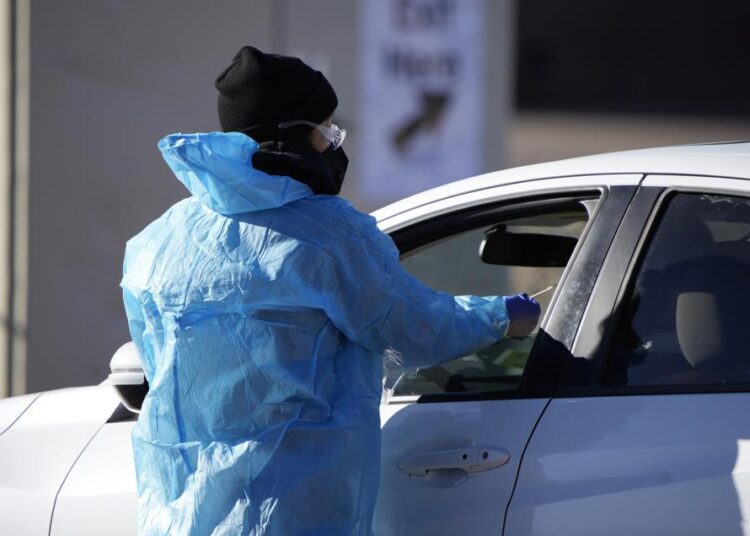As the raging omicron variant of Covid-19 infects workers across the nation, millions of those whose jobs don’t provide paid sick days are having to choose between their health and their paycheck.
While many companies instituted more robust sick leave policies at the beginning of the pandemic, some of those have since been scaled back with the rollout of the vaccines, even though omicron has managed to evade the shots. Meanwhile, the current labour shortage is adding to the pressure of workers having to decide whether to show up to their job sick if they can’t afford to stay home.
“It’s a vicious cycle,” said Daniel Schneider, professor of public policy at the Harvard Kennedy School of Government. “As staffing gets depleted because people are out sick, that means that those that are on the job have more to do and are even more reluctant to call in sick when they in turn get sick.”
Low-income hourly workers are especially vulnerable. Nearly 80 per cent of all private sector workers get at least one paid sick day, according to a national compensation survey of employee benefits conducted in March by the US Bureau of Labor Statistics. But only 33 per cent of workers whose wages are at the bottom 10 per cent get paid sick leave, compared with 95 per cent in the top 10 per cent.
A survey this past fall of roughly 6,600 hourly low-wage workers conducted by Harvard’s Shift Project, which focuses on inequality, found that 65 per cent of those workers who reported being sick in the last month said they went to work anyway. That’s lower than the 85 per cent who showed up to work sick before the pandemic, but much higher than it should be in the middle of a public health crisis. Schneider says it could get worse because of omicron and the labour shortage.
What’s more, Schneider noted that the share of workers with paid sick leave before the pandemic barely budged during the pandemic — 50 per cent versus 51 per cent respectively. He further noted many of the working poor surveyed don’t even have $400 in emergency funds, and families will now be even more financially strapped with the expiration of the child tax credit, which had put a few hundred dollars in families’ pockets every month.
The Associated Press interviewed one worker who started a new job with the state of New Mexico last month and started experiencing Covid-like symptoms earlier in the week. The worker, who asked not to be named because it might jeopardize their employment, took a day off to get tested and two more days to wait for the results.
A supervisor called and told the worker they would qualify for paid sick days only if the Covid test turns out to be positive. If the test is negative, the worker will have to take the days without pay, since they haven’t accrued enough time for sick leave.
“I thought I was doing the right thing by protecting my co-workers,” said the worker, who is still awaiting the results and estimates it will cost $160 per day of work missed if they test negative. “Now I wish I just would’ve gone to work and not said anything.”






Discussion about this post